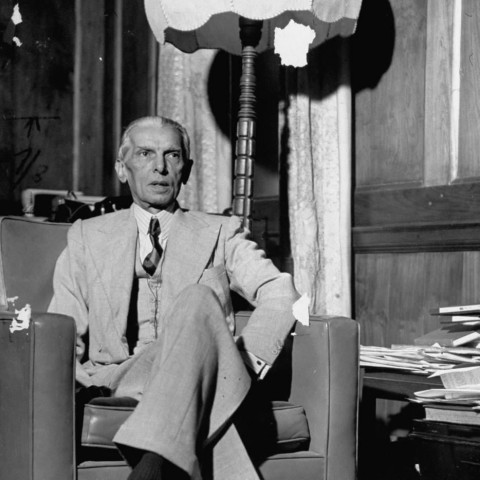Get over Jinnah’s Pakistan
Like almost every other issue in Pakistan, we are fighting over the abstractness of Jinnah’s vision of Pakistan

PHOTO COURTESY: TWITTER @JinnahMAli
Without taking any sides whether Jinnah was an Islamist or a secular person or wanted an Islamic or secular state, I believe both sides of the aisle can present reasonably authentic evidence to support their claims on what Jinnah viewed Pakistan as. The secular minded and liberals in Pakistan quote the constituent assembly speech where Jinnah clearly talked about the separation of religion from state affairs. The Islamists, on the other hand, like to quote Jinnah’s pre-partition speeches where his entire vision was to create a homeland for the Muslims of India because they were different in blood, culture, ethics, etc., from the Hindus. They argue that if Pakistan is for Muslims then why should it not be an Islamic state where the laws of Islam should prevail.
Like almost every other issue in Pakistan, we are fighting over the abstractness of Jinnah’s vision of Pakistan, something that probably even he was not too sure about. Truth be told, Jinnah was no Thomas Jefferson and unlike the American Founding Fathers who wrote and documented extensively their vision on how they would like to see the United States, Jinnah never probably had a vision beyond getting a Muslim homeland. The fact that in an age of writing and publishing, Jinnah left behind nothing but a few contradictory speeches is startling.
Should we not then spare the debate on Jinnah’s Pakistan that is polarising society, and instead just agree on something more general such as: Jinnah only wanted a prosperous Pakistan, and take it forward from there to make our own road map towards creating a Pakistan that the majority of us can agree upon?
The debate on Jinnah’s Pakistan is not only redundant but has gotten into a dense framework of complexities, largely because both sides fail to understand the ‘political and contextual angle’ of Jinnah’s speeches, that we have actually lost the purpose of what exactly we need to take out from the debate on Jinnah’s vision. Having any further dialogue and debate on such a topic is unlikely to get us anywhere. And if we are not getting anywhere on this topic, better would be to abandon it completely and not carve disunity of ideas and integrity issues.
How Pakistan should be today has nothing and should be nothing to do with what Jinnah wanted and why he wanted. First, it was not ‘only’ Jinnah who made Pakistan; it was the effort of each and every one who suffered during that period to make this country. Hence, the people who are equally responsible for making Pakistan, it is up to them and their generations to decide what and how exactly they want to see this country. Second, the world and technology around us has changed, and it’s important to live by realities of today, instead of the fantasies of yesterday.
Hence, there should be a little less stress on ‘Jinnah’s Pakistan’, because honestly, there is none; and scratching out Jinnah’s vision forcefully has only served the political interests of a few, confused the people and obfuscated the roadway to progress.
It is really about time we stopped arguing over what Jinnah wanted, or what perhaps Iqbal wanted, or whether they were secular or not. What is more important is what we want today, and how we want to achieve that. There is a desperate need to change the debate in our curriculum, media and households. We need to start asking the right questions to reach the right answers. To begin with, let us ask what we want today instead of what Jinnah wanted in 1947.
Published in The Express Tribune, April 1st, 2017.
Like Opinion & Editorial on Facebook, follow @ETOpEd on Twitter to receive all updates on all our daily pieces.














COMMENTS
Comments are moderated and generally will be posted if they are on-topic and not abusive.
For more information, please see our Comments FAQ